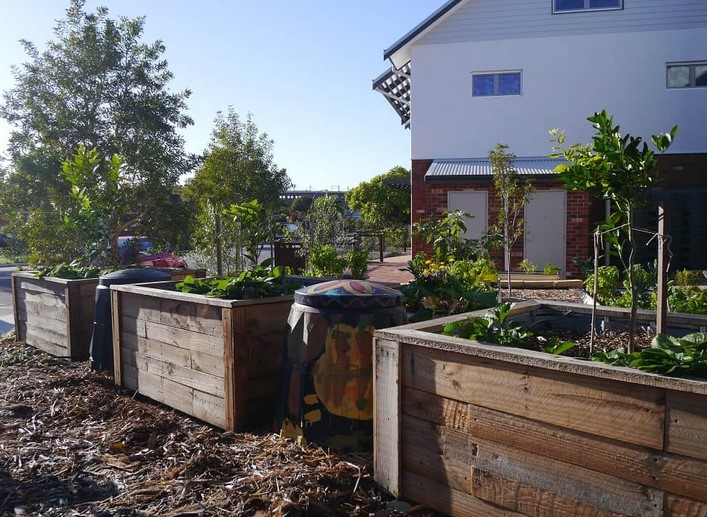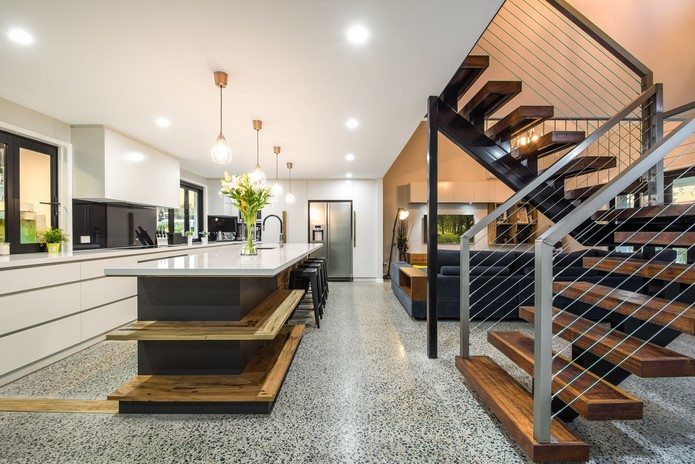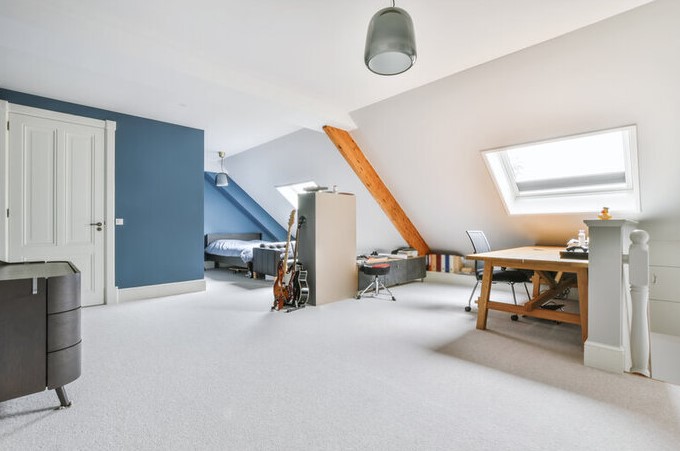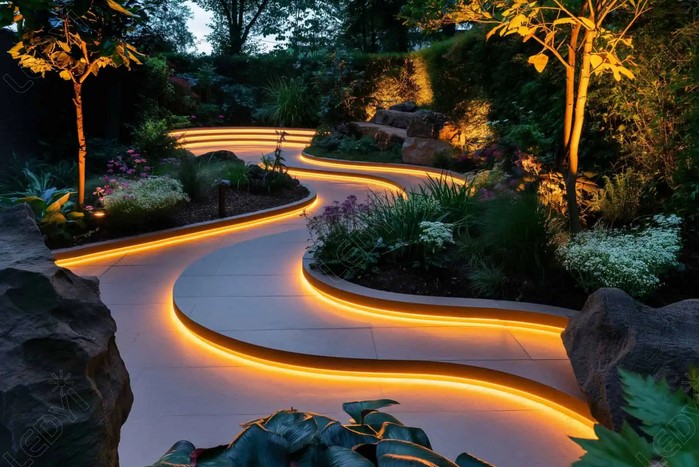
Source:https://treadingmyownpath.com
In today’s world, sustainable living is more important than ever. One of the easiest and most effective ways to contribute to environmental conservation is by composting. If you’re a gardener or simply someone who cares about reducing waste, building DIY compost bins for your garden can be a game-changer. Not only does composting help recycle organic materials, but it also enriches the soil, promotes plant health, and reduces the need for chemical fertilizers. In this article, we’ll walk you through the process of creating your own DIY compost bins, explore the benefits of composting, and provide practical tips for maintaining a successful composting system in your garden.
1. The Benefits of DIY Compost Bins
Building your own compost bin offers several advantages, both for your garden and the environment. Here’s why you should consider creating DIY compost bins:
Sustainability and Waste Reduction
Composting is one of the most effective ways to divert organic waste from landfills, reducing your household’s carbon footprint. Food scraps, yard trimmings, and other biodegradable materials make up a significant portion of landfills. By composting, you’re repurposing these materials into nutrient-rich compost that can benefit your garden and plants.
Creating your own compost bin allows you to take control over the materials you’re composting and ensures that your garden is getting the best possible nutrients. It’s a simple yet powerful way to practice sustainability in your everyday life.
Cost-Effective Gardening
Commercial fertilizers and soil amendments can be expensive, and many are chemically formulated, potentially harming the environment over time. By composting at home, you can create nutrient-rich soil for free. Whether you’re growing vegetables, flowers, or shrubs, homemade compost will improve soil structure, increase water retention, and enhance plant growth without the added cost of store-bought fertilizers.
Improved Soil Health
Compost provides essential nutrients that help improve soil structure, allowing roots to grow deeper and plants to thrive. The organic matter in compost helps to break up compacted soil, improving aeration and water infiltration. Over time, compost increases the biodiversity of your soil, supporting beneficial microorganisms that are vital for plant health.
Whether you have heavy clay soil or sandy, dry soil, compost can transform the quality of your garden soil, making it more fertile and easier to work with.
2. How to Build Your Own DIY Compost Bin
Building DIY compost bins is a straightforward process that requires minimal tools and materials. Below, we’ll guide you through the steps to create an efficient composting system for your garden.
Materials You’ll Need:
- Wooden Pallets or Wire Mesh: For the structure of your bin. Wooden pallets are commonly used because they’re inexpensive, easy to work with, and allow for proper air circulation.
- Nails or Screws: To secure the pallets together.
- Hinges: If you want to create a lid for your compost bin.
- Posthole Diggers or Shovel: To prepare the space for your compost bin and anchor any posts if necessary.
- Liner (optional): To help contain the composting materials and retain moisture, though this is optional.
Step-by-Step Guide to Building Your Compost Bin:
Step 1: Choose a Location
Select a well-drained, sunny spot for your compost bin. The ideal location should be easily accessible but not too close to your living areas, as it can generate some odor during the decomposition process. Make sure the area has adequate ventilation, as air circulation is crucial for proper composting.
Step 2: Prepare the Materials
If you’re using wooden pallets, ensure they are clean and free from any chemicals. You can also use wire mesh or chicken wire, especially if you prefer a more open, flexible design. Measure and cut your materials to the desired size. A common size for a compost bin is about 3 feet wide by 3 feet deep, which allows for good air circulation and ease of turning the compost.
Step 3: Build the Structure
Start by arranging the pallets or wire mesh into a square or rectangular shape. Secure the sides together using nails or screws. If you want easy access, consider adding a hinged door or a removable side so you can easily turn or remove the compost as needed. Some people also opt for a removable lid to keep the compost contained and minimize pests.
Step 4: Add the Composting Materials
Once your DIY compost bin is in place, you can start adding your compost materials. Be sure to include a mix of green materials (e.g., fruit and vegetable scraps, grass clippings, coffee grounds) and brown materials (e.g., dried leaves, straw, cardboard). A good compost mix should be balanced between these two types of materials to encourage decomposition.
Step 5: Turn the Compost
To promote healthy decomposition, you’ll need to turn the compost regularly, typically once every couple of weeks. This introduces oxygen into the pile, speeds up the breakdown process, and helps avoid any unpleasant smells. If you built a compost bin with a removable side, this task becomes much easier.
Step 6: Maintain the Right Moisture Level
Compost needs moisture to decompose, but it should not be too wet. A good rule of thumb is to maintain the compost pile at the consistency of a wrung-out sponge. If the pile becomes too dry, add some water; if it’s too wet, add more dry materials like leaves or straw to balance it out.
3. Tips for Successful Composting
While building DIY compost bins is a relatively simple process, maintaining an effective composting system requires some ongoing attention. Here are some tips to ensure your composting efforts are successful:
1. Avoid Certain Materials
While most organic materials are great for composting, some items should be avoided, including:
- Meat, fish, and dairy products (which attract pests)
- Diseased plants (which can spread disease to healthy plants)
- Glossy or heavily inked paper (which may contain chemicals harmful to compost)
2. Maintain the Right Ratio
A good compost mix requires a balance of green and brown materials. Ideally, aim for a ratio of 2:1 (two parts brown to one part green). Green materials are rich in nitrogen, while brown materials provide carbon. This balance ensures that microbes in the compost bin have enough energy to break down the organic matter.
3. Speed Up the Process
To speed up the decomposition process, chop or shred larger pieces of organic material. The smaller the material, the faster it will break down. You can also use compost accelerators or add earthworms to the bin to help break down the material more quickly.
4. Keep an Eye on Temperature
The ideal temperature for composting is between 130°F and 160°F (54°C to 71°C). A hot compost pile will decompose faster. You can use a compost thermometer to track the temperature of your pile, ensuring it stays within the optimal range.
Creating DIY compost bins is a simple yet impactful way to contribute to sustainability and improve your garden’s health. Not only will composting reduce waste and save money on store-bought fertilizers, but it will also provide you with nutrient-rich soil that will promote healthier plants and a more vibrant garden. With minimal effort and the right materials, you can start your own composting system at home and join the growing movement toward eco-friendly gardening. By creating your own DIY compost bins, you’re not just enhancing your garden; you’re also making a positive impact on the planet.



